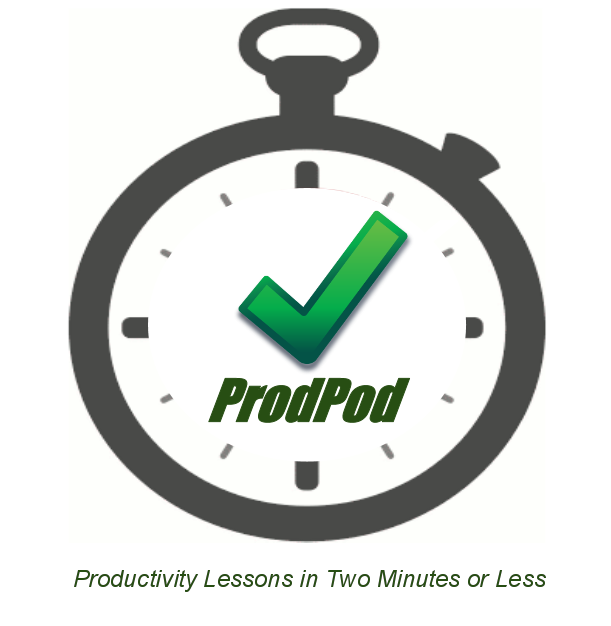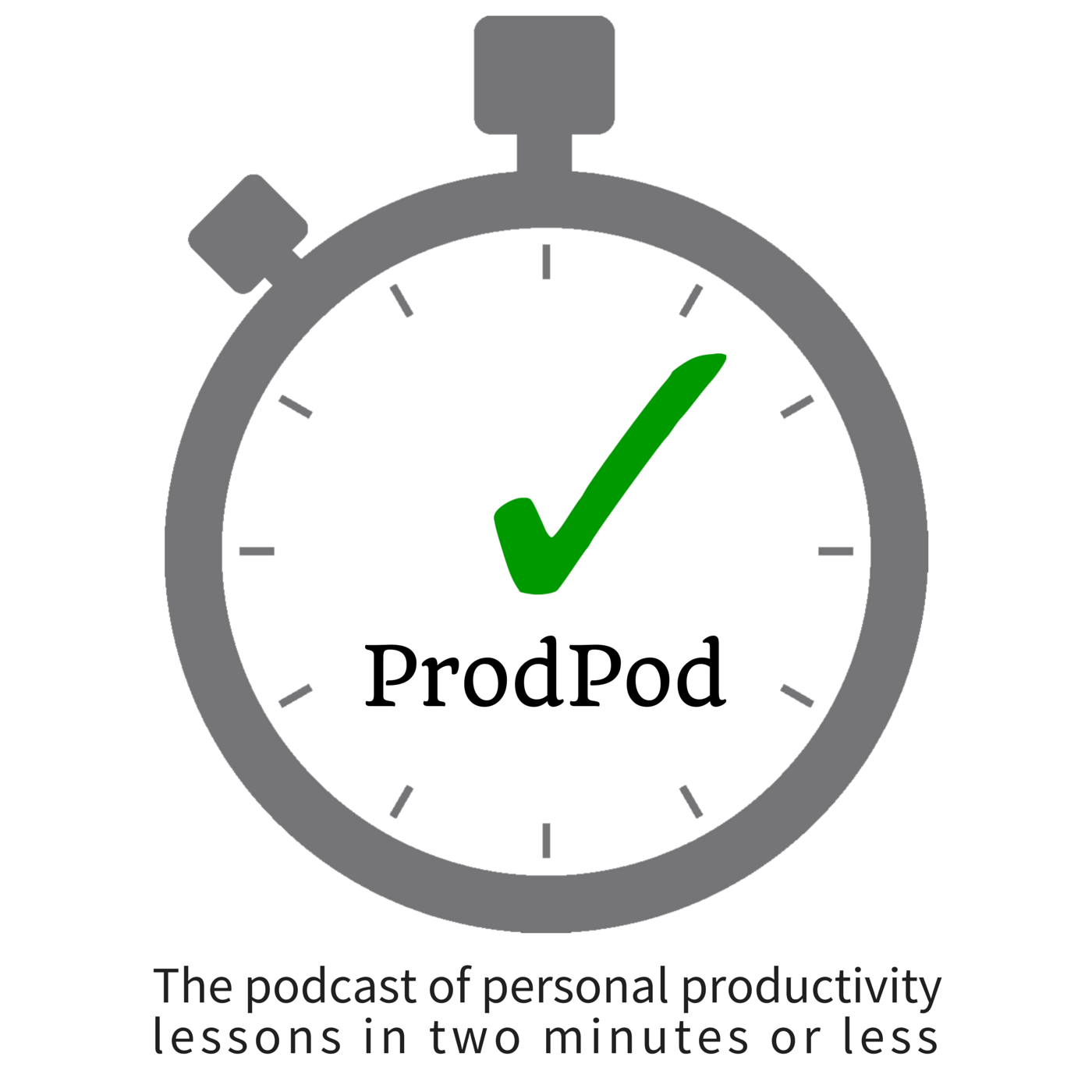Episodes

Tuesday Aug 16, 2011
ProdPod: Episode 12 -- How to Form a Productive Habit, Part 1
Tuesday Aug 16, 2011
Tuesday Aug 16, 2011
Distinguishing Between Habits and Other Forms of Non-Associative Learning In this 4-part podcast, I'll be discussing How to Form a Productive Habit. In this first episode, I'll explain the groundwork for determining how you'll tackle the formation of a new habit.
In this 4-part podcast, I'll be discussing how to Form a Productive Habit. In this first episode, I'll explain the groundwork for determining how you'll tackle the formation of a new habit. So, let's get right to it.
To make sure we're all speaking using the same understanding of terms, I'm going to define a few key items: habit, automaticity, habituation and sensitization. Then, I'll explain their relationship to forming productive habits.
A habit is an automatic response pattern developed by repeating a behavior until it becomes almost or completely unconscious.
Automaticity in psychological terms has been described as "unconscious competence" or the ability to do things without occupying the mind with the low-level details required, allowing them to become a habit. Some examples include driving a car, riding a bicycle, music sight-reading while playing the piano, and even speaking.
Habituation is the non-associative learning, psychological process, where a person decreases response to a stimulus after repeated exposure. A good example is your clothing. Once dressed, you feel your clothes on your skin but within minutes you no longer actually sense the clothing as your mind attends to more important stimuli.
Sensitization is another form of non-associative learning where a person responds because of a progressively increasing level of stimulus. Try rubbing your arm progressively faster until it burns; your response is to pull away because your brain initiates a pain response.
It's best to determine when you are forming a habit, whether you need to concern yourself with habituation or sensitization. For example, forming the productive habit of washing the dishes daily may be one part forming the habit and the other part realizing that something in your youth triggered a fear of dishwashing liquid. You'll need to habituate to the dishwashing liquid touching you before you'll ever be able to form the productive habit. And, you may even have a spouse or roommate remind you (with your permission) to perform the habit-in-process until you do it, so that with each reminder, your brain eventually initiates a crescendo-like response to your own commitment to wash the dishes.


No comments yet. Be the first to say something!